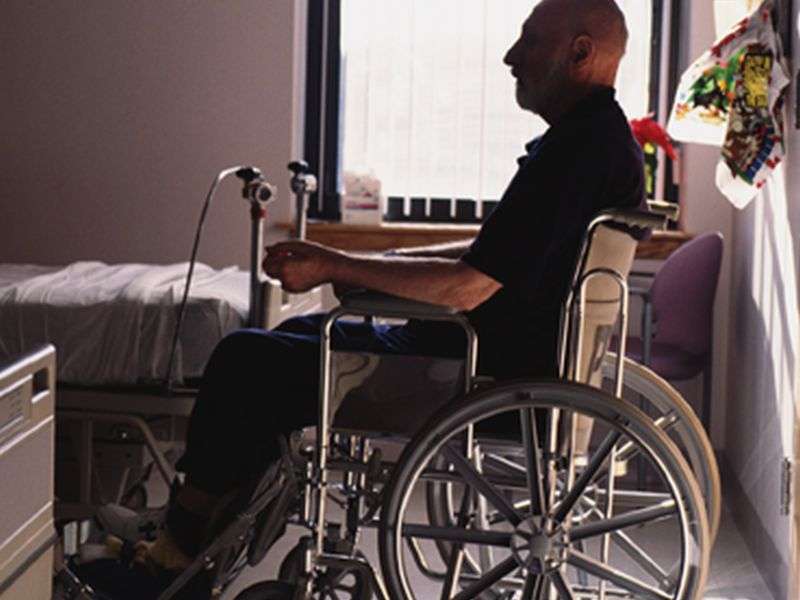(HealthDay)—Respiratory muscle strength assessments can predict survival or ventilator-free survival in amyotrophic lateral sclerosis (ALS), according to research published online Dec. 30 in the American Journal of Respiratory and Critical Care Medicine.
Michael I. Polkey, Ph.D., from the Royal Brompton and Harefield National Health Service Foundation Trust and Imperial College London, and colleagues compared the predictive power of invasive and noninvasive respiratory muscle strength assessments for survival or ventilator-free survival using data from a previously published report with respiratory muscle strength measurements for 78 patients with ALS.
The researchers found that each respiratory muscle strength assessment achieved statistical significance individually for the prediction of survival or ventilator-free survival. Significant predictors of ventilator-free survival included sniff trans-diaphragmatic and esophageal pressure, twitch trans-diaphragmatic pressure (Tw Pdi), age, and maximal static expiratory mouth pressure, in multivariate analyses; for absolute survival, predictors included Tw Pdi and maximal static expiratory mouth pressure. Differing sensitivities were seen for measures, although they all had good specificity. For vital capacity, all cut-off points were greater than 80 percent of normal, except for prediction of three-month outcomes. There was a linear decline for direct measures of respiratory strength, while little to no decline was seen in vital capacity until 12 months before death/ventilation.
"The most powerful biomarker for mortality stratification was Tw Pdi, but the predictive power of sniff nasal inspiratory pressure was also excellent," the authors write.
Ismar Healthcare supported the editing of the manuscript, which was funded by BioMarin Pharmaceutical; two authors are employees of BioMarin.
More information:
Full Text (subscription or payment may be required)
Editorial (subscription or payment may be required)
Journal information: American Journal of Respiratory and Critical Care Medicine
Copyright © 2017 HealthDay. All rights reserved.






















